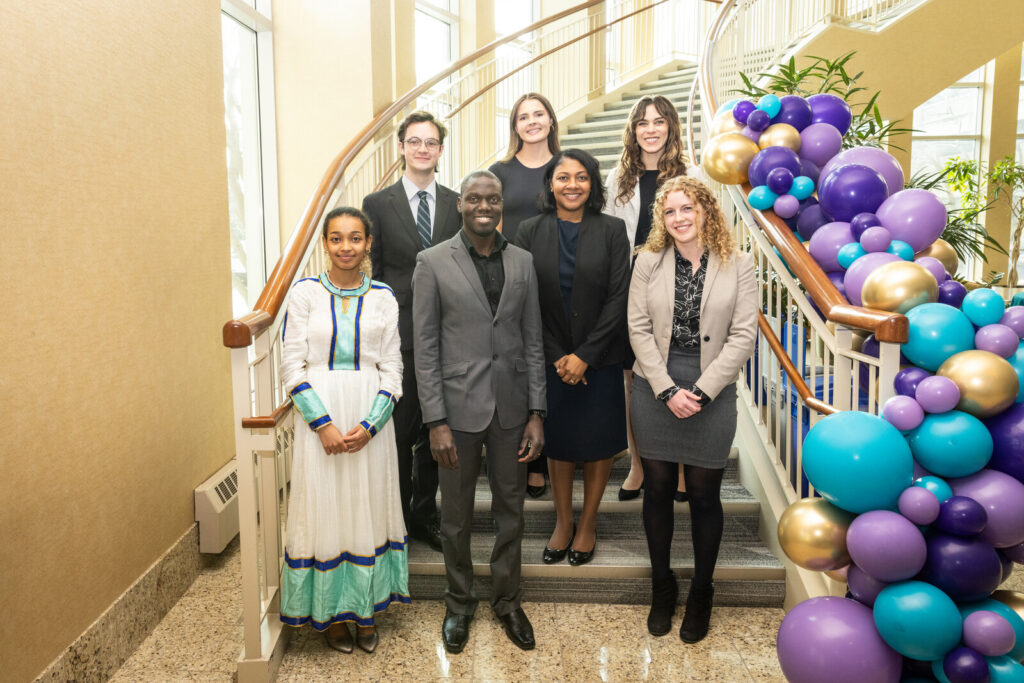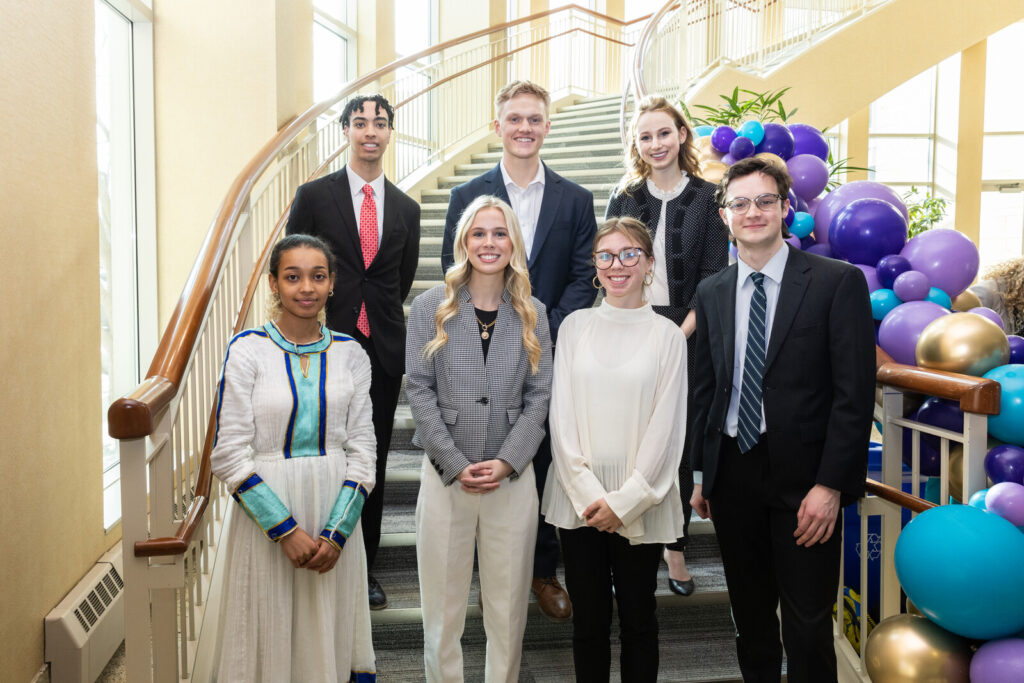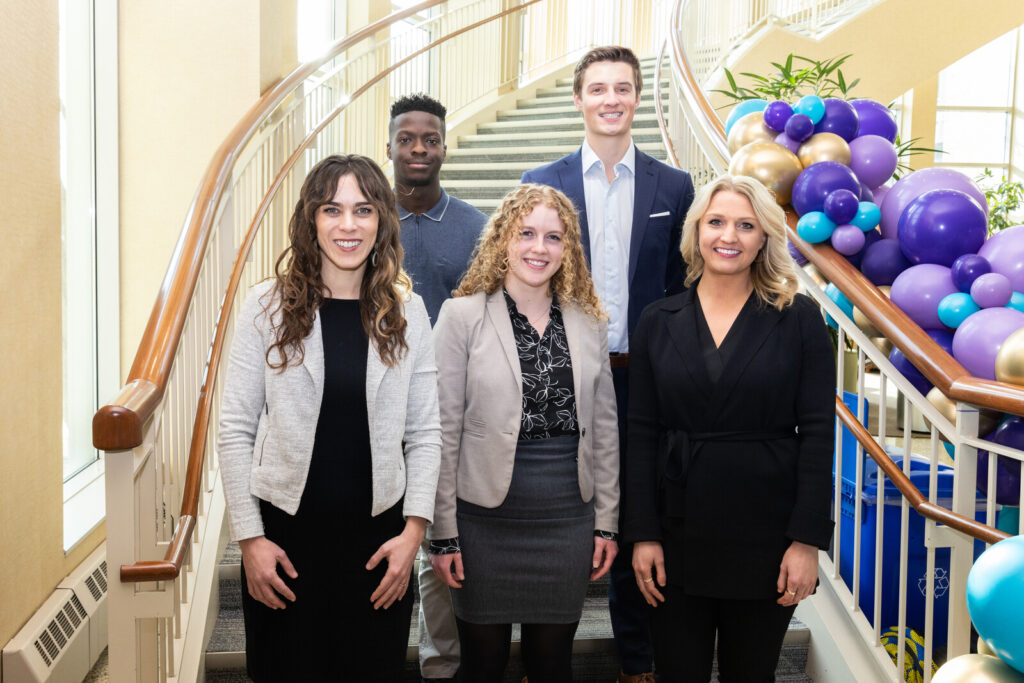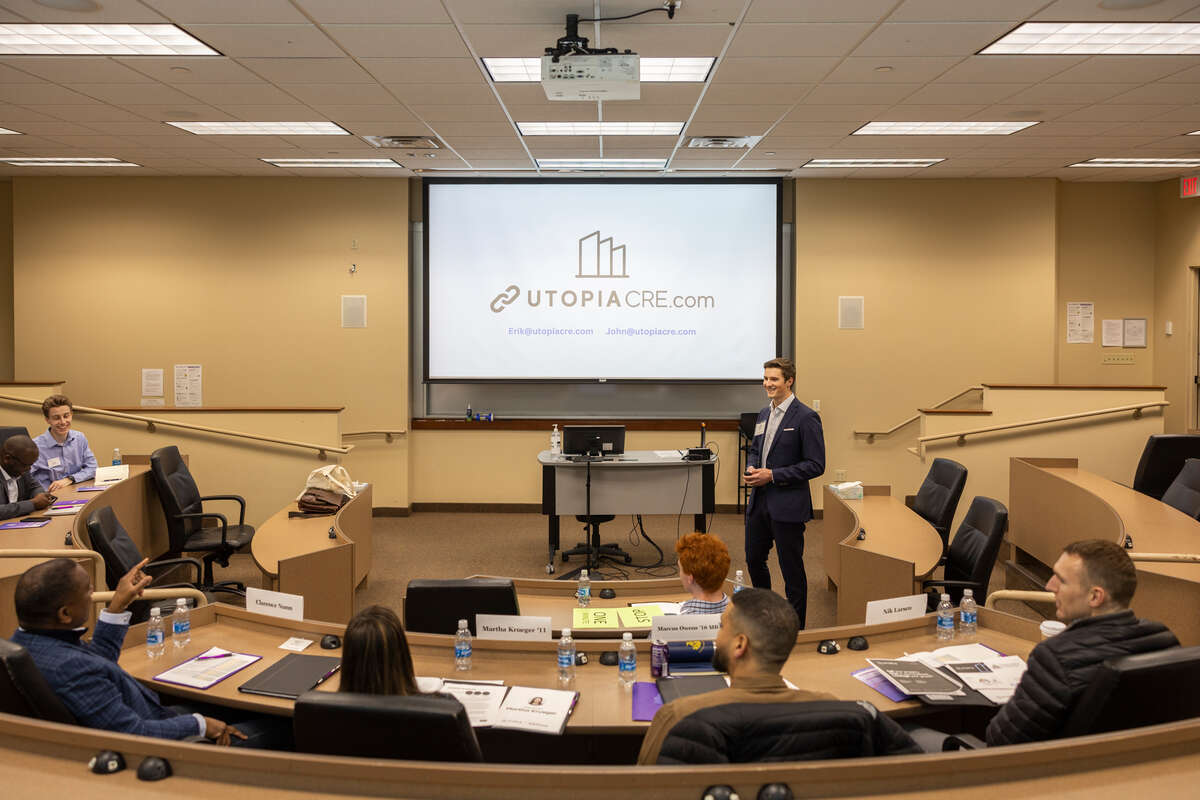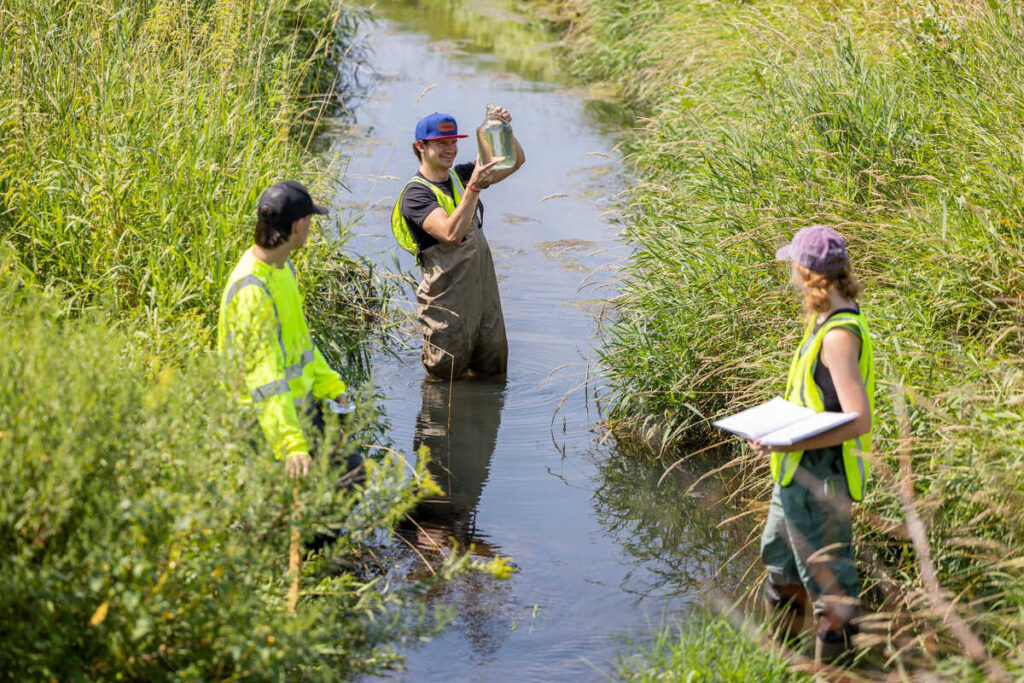The entrepreneurial spirit was in the air all day March 3 on the University of St. Thomas Minneapolis campus. That’s when the Schulze School of Entrepreneurship held for the first time a combined competition day with the Fowler Global Social Innovation Challenge (Fowler GSIC) Campus Finals in the morning and the St. Thomas Business Plan Competition in the afternoon.
Both undergraduates and graduate students/recent alumni competed for a total of $38,000 in cash prizes in the St. Thomas Business Plan Competition, which saw a 60% increase in submissions over 2022.
In the Fowler GSIC Campus Finals, five teams competed for an additional $12,000 in cash prizes. The top two winners in that competition, Chemco and B-Care Wood Pellet, will compete in June at the Fowler GSIC Global Finals for prizes ranging from $10,000 to $25,000 for first place. St. Thomas will be hosting that event with teams participating from around the world. The Fowler GSIC is named in recognition of Ron Fowler ’66, chairman and CEO of Liquid Investments Inc., whose gifts to the university have made the competition possible.
In total, the competing students represented 18 different majors.
“The innovative spirit of our Tommie thinkers and doers lit up the auditorium at the Business Plan Competition and Fowler Global Social Innovation Challenge,” Associate Dean of the Schulze School of Entrepreneurship Sheneeta White said. “Through these competitions, students and recent alumni are learning and practicing the skills to tackle important problems and craft new solutions for a better world.”
Fowler Global Social Innovation Challenge Awards:
- First place ($6,000): Chemco – Gabriel Riegert ’24 (leadership and management). A material reclaiming facility, with a leading-edge processing potential.
- Second place ($3,000): B-Care Wood Pellet – Beamlak Petros ’26 (entrepreneurship). A project addressing the energy and health constraints faced by women in Ethiopia as well as the ongoing practice of using firewood collected directly from forests to fuel household activities.
- Third place ($1,500): Chumisa – Justa Heinen Kay ’24 MBA and Rhynn Paulsen ’25 (biology and political science). Chumisa empowers residents of Khayelitsha, South Africa, to earn supplemental income by composting their food scraps using worms, also known as vermicomposting. The finished product, “black gold,” will be purchased by Chumisa for distribution to urban farms or kept by residents to use in their own garden.
- Fourth place ($1,000): Kaloke LLC – Simon Latim ’21 MBA. Kaloke was formed with an idea to promote environmental integrity and social equity, while creating unforgettable experiences to its customers who visit East Africa (Uganda, Kenya, Tanzania and Rwanda). Kaloke operates an eco-lodge on the banks of the Nile, Jinja Uganda, which is operated on 100% renewable energy. Additionally, Kaloke is mobilizing young people to plant trees and protect and preserve the biodiversity along the Nile.
- Fifth place ($500): Athena Capital – Chloe Ginkel ’23 (entrepreneurship). Athena Capital, a venture capital fund based in the Twin Cities, invests in pre-seed, female-founded businesses with a focus on for-profit social enterprises. It aims to alleviate the struggles female founders face when finding financial and intellectual capital while promoting female visibility and representation in the entrepreneurial field.
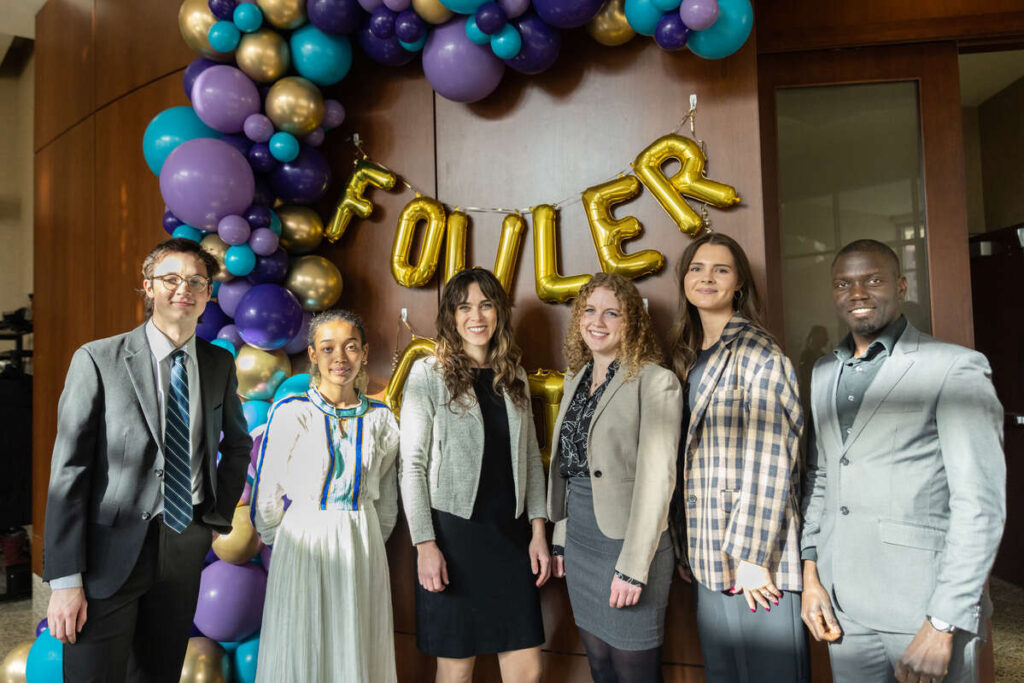
St. Thomas Business Plan Competition Awards:
Undergraduate Student Track Finalists:
- First place ($10,000): Chemco – Gabriel Riegert ’24 (leadership and management). A material reclaiming facility, with a leading-edge processing potential.
- Second place ($5,000): 4U – Nate Charles ’24 (entrepreneurship) and Leah Schuerkamp ’25 (entrepreneurship). 4U is a mental health resource for teens with parents going through a divorce.
- Third place ($2,500): B-Care Wood Pellet – Beamlak Petros ’26 (entrepreneurship). A project addressing the energy and health constraints faced by women in Ethiopia as well as the ongoing practice of using firewood collected directly from forests to fuel household activities.
- Fourth place ($1,000): Business Social Society – Payton Maas ’24 (entrepreneurship) and Katie McDonald ’24 (entrepreneurship). A networking space for young professionals aiming to address the need for a location for young professionals to find a community by providing a space for socialization, centered around the objectives of professional development and networking.
- Fifth place ($500): Refero – Cole Heppner ’24 (entrepreneurship). A social media app to help four-year universities increase student retention and engagement by minimizing student anxiety and stimulating face-to-face conversations to lead to meaningful relationships, unlike college engagement platforms.
Graduate Student/Recent Alumni Track Finalists:
- First place ($10,000): LITLAB – Lindsay Truax ’24 Health Care MBA. LITLAB improves the access, quality, and convenience of medical training and innovation through mobile facilities and services.
- Second place ($5,000): Utopia CRE – Erik Anderson ’22 (entrepreneurship). A commercial real estate acquisition company specializing in sale-leaseback transactions with private practice medical tenants.
- Third place ($2,500): Chumisa – Justa Heinen Kay ’24 MBA and Rhynn Paulsen ’25 (biology and political science). Chumisa empowers residents of Khayelitsha, South Africa, to earn supplemental income by composting their food scraps using worms, also known as vermicomposting. The finished product, “black gold,” will be purchased by Chumisa for distribution to urban farms or kept by residents to use in their own garden.
- Fourth place ($1,000): TradeOut – Gafar Amuda ’20 (computer science). TradeOut is an online platform that aims to reduce the risk of fraud or scams for online marketplace purchases. You can negotiate with a contract, document the purchase terms between the seller and buyer, and define the exchange location, all in one place.
- Fifth place ($500): Keepit – Christopher Reiss ’20 (general business). Keepit’s padlocks place access control solutions in the hands of consumers to automate the renting and buying of inventory from businesses.
